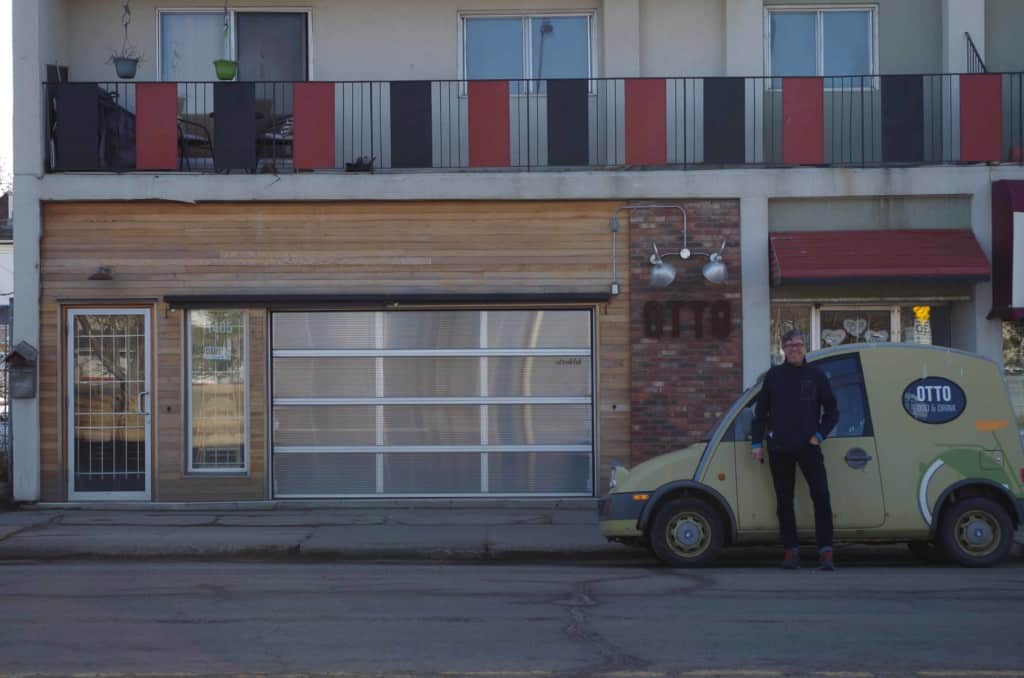Supporting local businesses during COVID-19
How the pandemic has affected different small businesses
Since COVID-19 began, local businesses have had to make tough decisions. Many have had to either close temporarily or adjust how they do business.
OTTO Food & Drink and YEG Smoked Meats LTD. have both found ways to deliver their food to the public.
Ed Donszelmann, owner of OTTO Food & Drink, says he initially tried offering three days of heated takeaway for customers. Safety was an issue. “OTTO is so tiny, there was no such thing as social distancing going on. We weren’t able to stay two metres apart, so we just decided this is too dangerous, we have to close now.”
They now sell fresh, vacuum-packed sausages. Customers can place an order on ottofoodanddrink.com/ and curbside pickup will be arranged. “Fingers crossed that our little venture will work.”

YEG Smoked Meats LTD. have also adapted.
“We have created weekly Social Distancing Snack Packs which we offer with free delivery to our customers every Sunday. As well, we have made curbside pickup available at the shop,” say owners Lindsay Gorda and Tilo Paravalos. “Shopping online for delivery or curbside pickup is the biggest contribution [customers] can do currently. These purchases are keeping local shops afloat these days, so hopefully they can be here after the pandemic.” They have a menu and an order form on their website yegsmokedmeats.ca for people to place their orders.
Some businesses, like Bedouin Beats, are now doing business online via bedouinbeats.myshopify.com/.

“I decided to close the store on [March] 16th. No one had come in. Things were really starting to get ramped up with the news and everything at that point. My instructor was in that evening and I told her, ‘We need to call it. We can’t be risking people’s health by having them come in here,’ ” explains Michelle Kaplan, owner of Bedouin Beats.
Bedouin Beats has provided classes for 19 different styles of belly dancing. Kaplan says the benefit of online classes is that anyone worldwide can enroll.
“In our hayday, we used to get between 15 and 20 people in a class,” says Kaplan. She says registration has declined over the last few years due to the economy and during that time, they’d have between five and 15 people in a class. “Right now, we are looking at between two and six.”
Kaplan will also be adding inventory to the online store. But even with the online classes and store, there is still the chance they could shut down permanently. Paying instructors and covering operating costs are becoming difficult. “I don’t know what’s going to happen with our studio. I don’t know if we are going to be able to make enough money through all of this to be able to cover operating costs.” Kaplan says she now has extra operating expenses with the online classes. “I’m actually having to pay out more because of this.”

Other businesses have had to close temporarily.
“I currently have no income as my business requires very close contact with people and it’s not safe to do right now,” says Victoria Stevens, owner and hairstylist at Metropolitan Rockabilly Hair Design.
Stevens closed her business in mid-March before the mandated closures. “I closed because the close contact nature of the work made it impossible for me to ensure the virus wasn’t being passed from either myself to clients or vice versa.” In the meantime, Stevens has been creating videos to help educate and teach people about hair care and styling. She’s also selling and delivering professional hair products and tools via metropolitanrockabilly.ca/. As well, you can buy a t-shirt with her salon’s logo on it from hereforgood.printmachine.ca/here_for_good_by_printmachineca/shop/home. The proceeds will help her salon.
For businesses that had to close, there are ways to still help them. Donate money, buy gift cards, or reach out and ask if they have the items you need, even if they’re closed.
“I strongly encourage [local business owners], if they haven’t already done so, to connect with their landlord, suppliers, banker, as well as family,” says Joachim Holtz, executive director of Alberta Avenue Business Association (AABA). “Stay in touch with existing customers and treat them like gold nuggets. Do everything possible to keep them, because new customers are very much harder to find.”
Holtz stresses the importance of talking to landlords. “Landlords have their expenses too, but they also don’t want to have empty unrented buildings.”
The future is unclear. Each business is different and some business owners may find a new path.
Holtz says, “Many of our businesses are true and courageous entrepreneurs. They are used to adversity and taking risks, and hopefully will re-emerge stronger for it.”
RESOURCES
Visit alberta-avenue.com/covid-19 for resources and financial support initiatives for businesses.
Some lenders are deferring mortgage payments. Check with your bank.
Visit canada.ca for details about the Canada Emergency Wage Subsidy.
Visit canada.ca for details about Canada Emergency Business Account, which provides interest-free loans to small businesses and non-profits to help cover operating costs.
Utility payments are deferred to June 19, 2020 (contact your utility company).
Featured Image: Ed Donszelmann, owner of OTTO Food & Drink, is now selling vacuum-sealed sausages. | Stephen Strand







